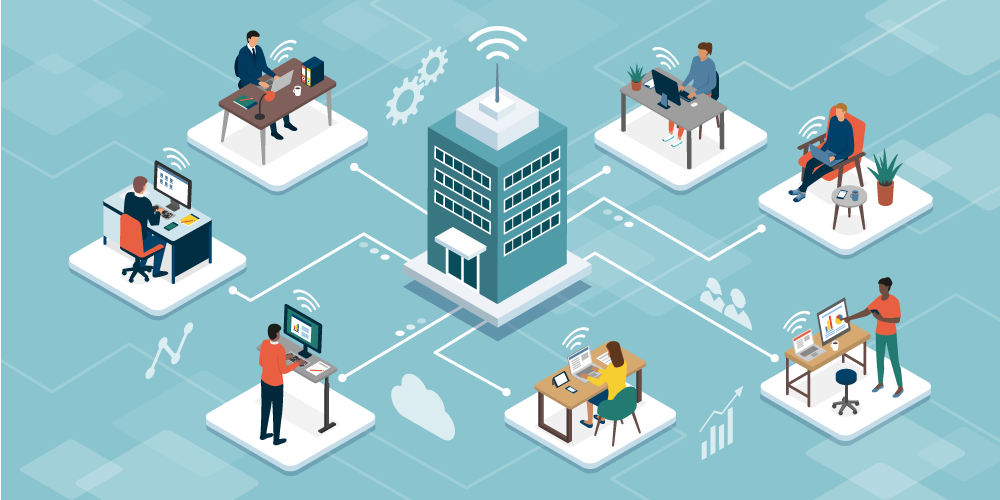
Apr 16, 2020 | SMB Technology, SMB Technology, SMB Technology, SMB Technology, Technology News
With remote workers becoming the ‘new normal’ in these strange times, remote office security and communication become increasingly important. Read on to learn more about preparing your employees and business for remote work. Remote Office Security Best Practices Let remote workers know they are just as responsible for keeping the network safe at home as at the office. Have them maintain a dedicated work space in their home office, where they do only work, and not personal, computing. Physical security is important too; make sure that other family members, if any, don’t have access to equipment used for work. The remote worker will need to conduct phone calls where any confidential information can’t be overheard. Anything the remote employee prints should be shredded after use. Another good practice is keeping the office door locked if not in use. Logging off is an important practice, even if only leaving the computer for a moment. If the remote employee is using their own computer, it needs current anti-malware and antivirus protection, backup and operating system patches. A firewall with a subnet for personal vs. business should also be established. Businesses responsible for complying with regulations such as HIPAA have even more stringent security requirements. Learn more about managing a mobile workforce here. Just as you’ve been busy, so have cybercriminals. A common practice is phishing using social engineering. A cybercriminal can send an email that looks like it’s from a government source, providing links to sites that will automatically download ransomware. Remote employees need to be trained how to verify if the email is genuine; if it isn’t, they need to...

Apr 7, 2020 | SMB Technology, Technology News
In the last month off dealing with COVID-19, many workplaces have shut down their offices. Many employees are working remotely, and meeting via web-conferencing platforms. Read on to learn more about keeping safe, healthy and productive during unusual times. Observing Basic Health and Safety Guidelines Although many businesses are closed, some essential services may still be open, and there may be times when customers and employees need to come to the office. If this is the case, heed the 6-foot social distancing guidelines, and wear a mask, if possible. Business can easily be done, however, via email, phone, or online. With remote interaction becoming the norm, new considerations exist, including cybersecurity and access to data among them. Keep Your Network Secure During COVID-19 Difficult times can bring out the best and worst in people. While many people have risen to the occasion and looked to help others, cybercriminals are also at work. One way they aim to attack is phishing emails designed to get hold of personal information. Cybercriminals can even make their emails look like legitimate communications from agencies like the World Health Organization. Certain clues can give away these emails–spelling and grammatical errors, a generic greeting, or an urgent call to action designed to play on real fears. If in doubt about an email, you can point your mouse arrow at the email address or URL, to learn where the message came from. Of course, do not click on any link in the message, but report the message and then delete it. To keep your company’s network safe, consider remote network monitoring and make sure reports know...




